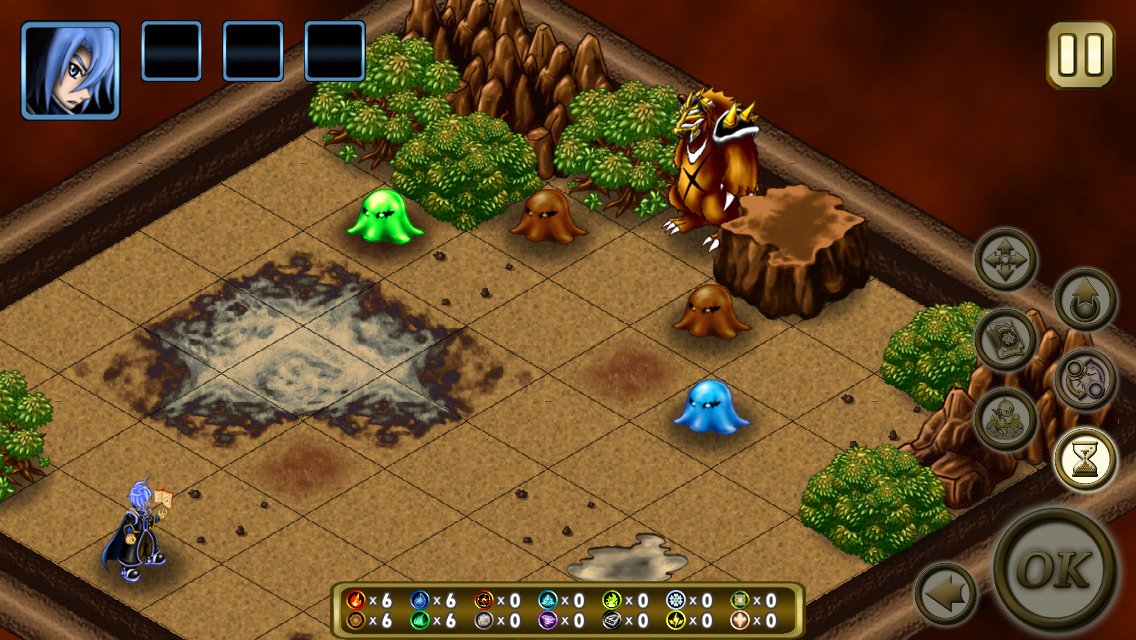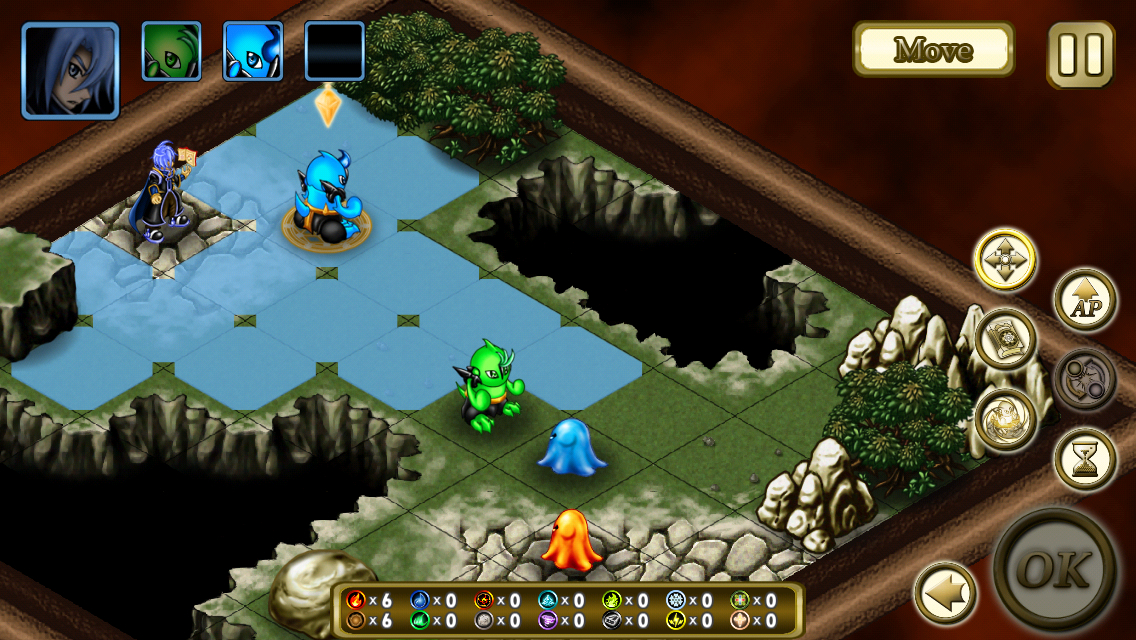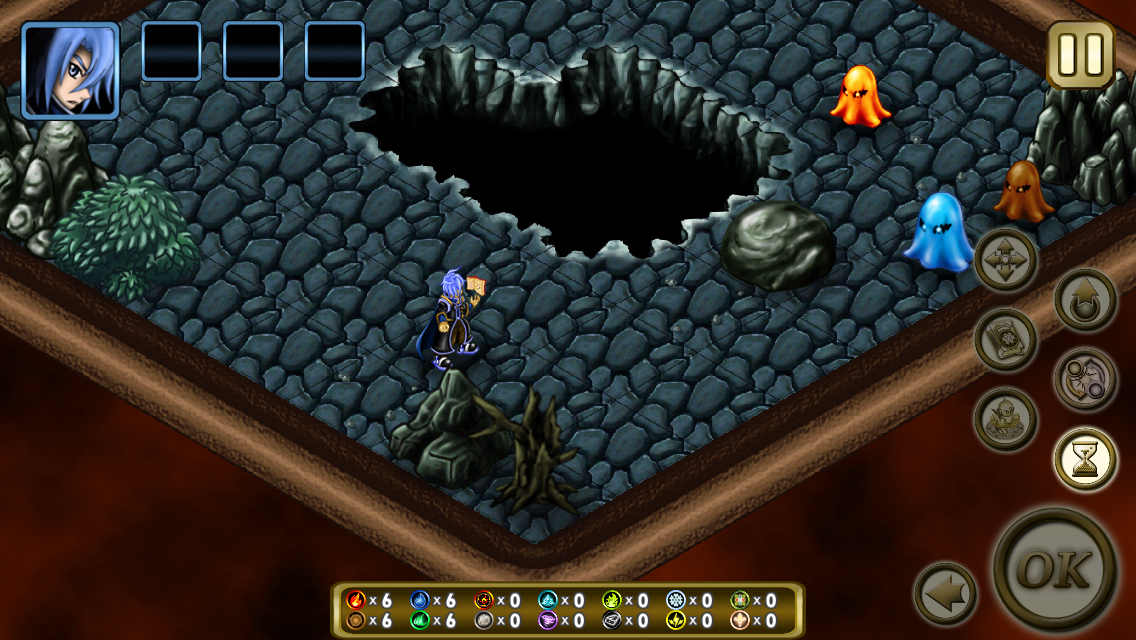![]() While I enjoy a big budget RPG production like any fan of the genre does, I’m also a pretty big fan of checking out what the little guys are up to. That’s because when it comes to RPGs, perhaps more than most genres, you don’t need a huge budget or a massive studio to realize your gameplay ideas. It doesn’t hurt, mind you, but it’s arguable that the very core of video game RPGs is in realizing abstract ideas through more practical means. It’s why companies like Atlus and Falcom who work with budgets many times smaller than someone like Square-Enix are still able to capture the hearts of RPG lovers just the same. To be honest, finding an innovative RPG with ideas that connect well with me tends to be a bit rare, but the enjoyment I get from them when I do find them makes the search more than worthwhile.
While I enjoy a big budget RPG production like any fan of the genre does, I’m also a pretty big fan of checking out what the little guys are up to. That’s because when it comes to RPGs, perhaps more than most genres, you don’t need a huge budget or a massive studio to realize your gameplay ideas. It doesn’t hurt, mind you, but it’s arguable that the very core of video game RPGs is in realizing abstract ideas through more practical means. It’s why companies like Atlus and Falcom who work with budgets many times smaller than someone like Square-Enix are still able to capture the hearts of RPG lovers just the same. To be honest, finding an innovative RPG with ideas that connect well with me tends to be a bit rare, but the enjoyment I get from them when I do find them makes the search more than worthwhile.
Farentia (Free), I regret to say, is not one of those rare games. Rather, it’s sort of a poster child for the other sort of small-scale RPGs. It’s extremely short on interesting or unique ideas, and the systems it uses are implemented in a paint-by-numbers style that’s hard to get excited about at all. It feels less like a game sprung out of good ideas and more like badly-conceived Tactics Ogre fanfiction that ran out of gas halfway through. It’s a bowl of plain oatmeal given the form of a strategy RPG. What’s ultimately most frustrating about the game is that it’s quite mechanically sound. The engine seems competent, the spritework and backgrounds are fine for a project of this scale, the UI is quite friendly, and the 30 seconds or so of music that loops endlessly is well-composed, even though it soon begins to grate. It’s clear a lot of work went into giving this game a voice with which it has nothing to say.

The first sign of this comes with the opening story scene, which talks about a conflict between a great warrior and a great evil where the warrior wins and seals the evil away, but now he’s back and you’re the chosen one, etc. It’s an empty, generic plot dump, and it’s the last you’ll see of the story for quite a while. Of course, a strategy game lives or dies by its gameplay, with a good story serving more as a cherry on top, so it’s hardly a killing blow that Farentia‘s story is so weak. The game then runs you through the tutorial stage, teaching you about a lot of its mechanics before sending you out into the world map, where you can choose the stage you’d like to play.
As it turns out, this stage selection ended up being one of my favorite parts of the game. Clearing stages earns you new abilities in that stage’s magical element. Since the 14 elements form a circle of strengths and weaknesses, it’s up to you to find a point in the circle where you can break in with what you currently have, and then use that stage’s power to take on the stage weak to it. There’s an air of Mega Man to it, which I can honestly say I’ve never run into in a strategy RPG before, and it’s both the beginning and the end of this game’s interesting ideas.

Your character is a summoner, so you’ll be fighting your battles with the aid of summoned creatures. Initially, you can have three out at one time, but you can increase that number after a while. You can directly attack enemies on your own, of course, but that’s not a very good idea, since if your summoner falls, the battle is over. All creatures in the game correspond to one of the elements. Using the wrong type of element will result in very little damage being done, while using the right type will result in devastating attacks. Summoning a monster requires you to have a certain number of shards of the same element, and you can only bring out one per turn. You can restore some shards using your summoner’s turn, but you’ll start each round with just enough to bring out one monster of each element. If you want to bring out another one of the same type, you’ll have to spend a couple of turns charging. Using your direct attacks also uses these shards, and all of this contributes to the game’s biggest flaw.
At the absolute bare minimum, for a strategy game to be fun, it should require some use of strategy. I hope that’s not a controversial statement. The big issue with Farentia is that the winning strategy for every map is both immediately clear and always the same. Summon monsters of the element the enemies are weak against, hide your summoner in a corner, charge up, and send out another monsters as soon as you have enough shards. There’s a little bit of work involved since the enemy is always made up of mixed company, but they’re also enormously stupid, so it’s easy to bait them out and beat the stuffing out of them. This never fails to be the best strategy. It also involves a lot of wasting turns charging up, but as near as I can tell, it’s still the fastest road to victory. The new skills you pick up on the way, as well as the new summons, are really just bigger guns that sometimes add status effects to attacks or hit at a longer range. None of it matters, though, since all you need to do is sic the monster with the right element on the bad guy and hide your hero away from harm.

There are all kinds of other things in play, like an equipment system, action points that govern how many of your strong attacks you can use, and so on, but it’s all pointless in the face of the one true strategy, a method that is unfortunately instantly apparent as soon as you see a fire guy do minor damage to a water guy and a billion damage to an earth guy. If you’re making a strategy RPG, the last words you would want to apply to your battles are ‘mindless’ and ‘drawn-out’, especially in tandem, but I can’t really think of a better way to describe Farentia. The sheer monotony of it is amplified by that 30 second loop of music, repeating itself over and over again, at least 40 times per fight.
About the best thing I can say for Farentia is that you get a fair amount of playtime out of it for just one dollar. This is a sub-genre where the most famous examples are actually a bit on the high side of pricing on the App Store, so for the budget-oriented strategy RPG fan, this might be an alright choice to scratch the itch without breaking the bank. It’s functional but forgettable, lengthy for its price but dull, and above all, only of interest to the hungriest of genre fans who have already exhausted the many better options on iOS.